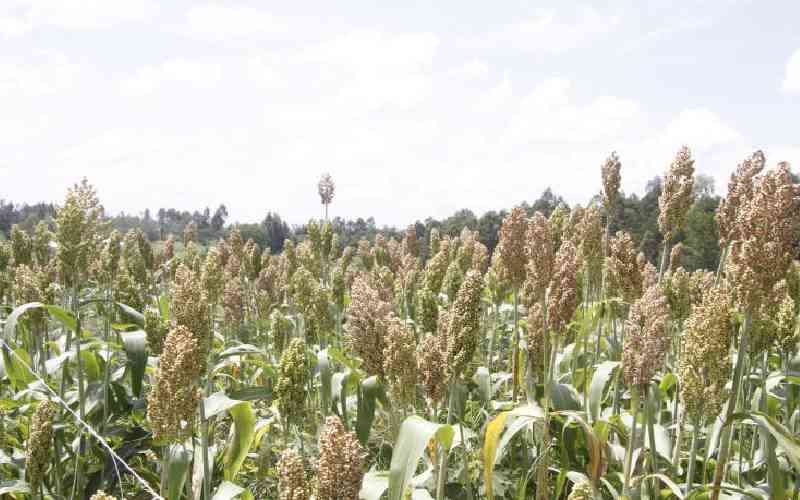×
The Standard e-Paper
Join Thousands Daily

The farmers in Athiru Gaiti and other villages in the dry parts of northern Meru are reporting success because there is a ready market for the sorghum. [Caleb Kingwara, Standard]
Small-scale farmers in arid and semi-arid areas in Meru, Mbeere and Tharaka Nithi areas have embraced sorghum farming to adapt to climate change.